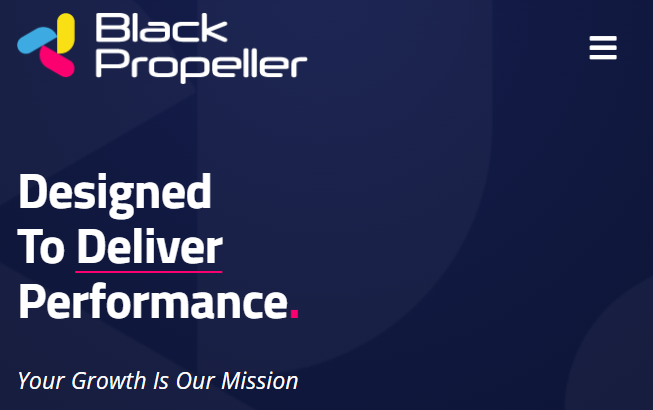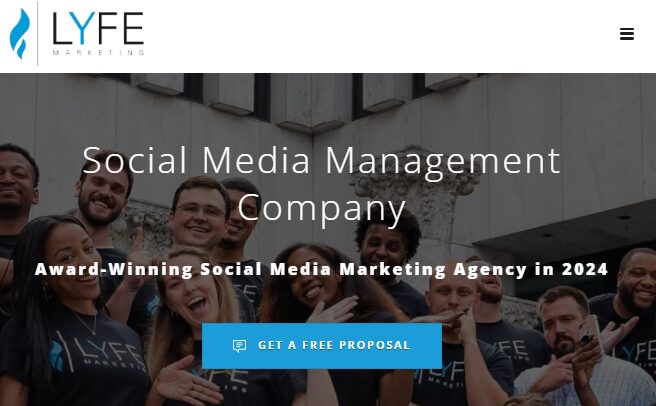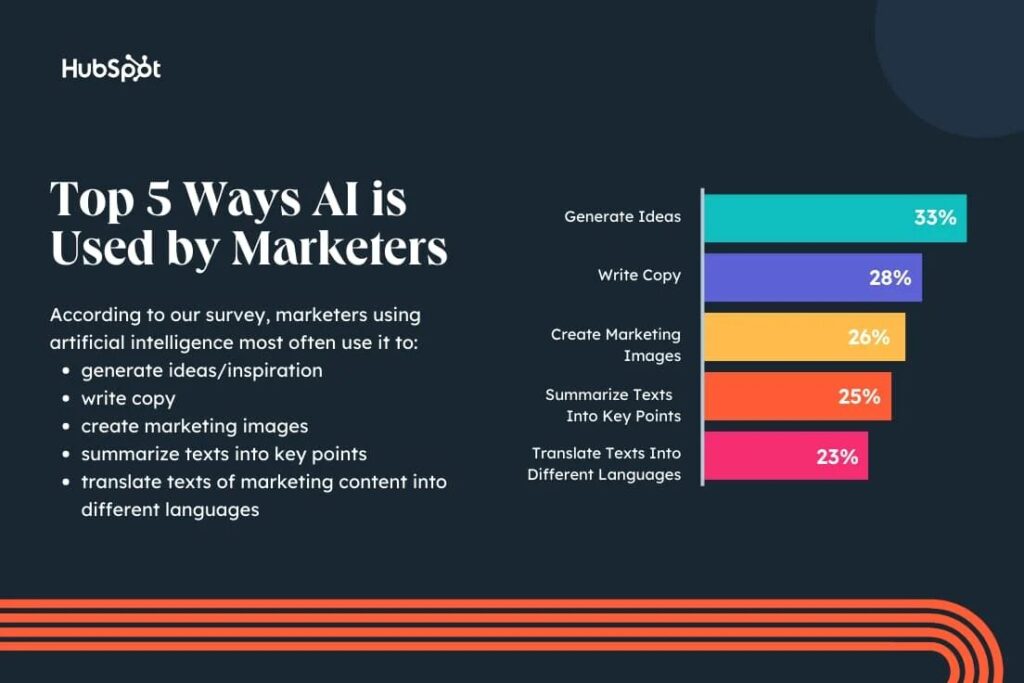Businesses around the world are spending over $500 billion on digital advertising, a figure that will reach $870.8 billion by 2027. One segment where a fraction of this spending goes is digital marketing agencies.
In 2023, digital marketing agencies in the US alone generated a revenue of $44.75 billion. Since the figure has doubled since 2019, it’s clear that there’s a huge scope for digital marketing agencies to thrive in the market.
But with competition getting tougher each day, how can you establish a profitable digital marketing agency? Our guide covers essential digital marketing agency tips to help you build and scale your agency.
Digital Marketing Agency Tips: Build, Grow, and Scale Your Business:
What Is a Digital Marketing Agency?
A digital marketing agency is a company that specializes in providing all services associated with digital marketing. Some of these services include:
A digital marketing agency doesn’t necessarily have to stick to one type of service. Most agencies offer all or a combination of these services.
That brings us to the types of digital marketing agencies:
- Full Service: A full-service agency handles all digital marketing services. Such agencies have an extensive team of social media managers, web developers, creatives, designers, ad specialists, and so on.
- Single-Channel: Some agencies only focus on one digital marketing channel. For example, a company may only offer SEO services. Another may only do influencer marketing.
- Multi-Channel: These agencies are somewhere between full-service and single-channel agencies. They offer a handful of services, but not all of them. For example, an agency may provide content marketing, social media, and PPC services.
How to Start a Digital Marketing Agency?
Here’s a step-by-step guide on how to start a digital marketing agency. If you’ve already done some of these steps, simply skip and move on to the next one.
Step 1: Select Your Agency Type
What kind of digital marketing agency do you want to be? The answer to this question will determine a lot of things, such as your target market, pricing strategy, etc.
For example, you could be a general digital marketing agency. PureSEO is an example of such a company, offering a wide range of services, such as online advertising, digital analytics, social media, content marketing, search engine marketing (SEM), SEO, and conversion rate optimization (CRO).


Similarly, Viral Nation is a renowned digital marketing agency we cover in our review of best marketing services for business growth. It’s also a full-service digital marketing agency, but with a specific focus on social commerce and social media transformation.
Alternatively, you can focus on a single or few channels, such as Black Propeller. The agency mainly does paid search and social media ads.


Similarly, you may take a multi-channel approach, where you offer a few specialized services rather than the whole package.
Lyfe Marketing is a good example. The agency only offers:
- Social media marketing and advertising
- Email marketing
- PPC management


The type of agency you choose to be depends on your resources, both financially and in terms of skills. If you’re a small team of social media and email marketers, there’s no point in advertising yourself to be masters of all digital marketing channels.
Instead, you can focus on providing exceptional services in your niche areas.
Step 2: Choose Your Services
When you say you do email marketing, does it mean any and every kind of email marketing? Or do you only offer email marketing strategy and consultation?
Be specific in what you offer. For example, if you plan to offer PPC services, decide if you’ll do it for all channels or just Google Ads. Will you also offer Facebook Ads, Instagram Ads, TikTok Ads, Reddit Ads, etc.?
Similarly, with SEO, determine your expertise. You may do link-building and on-page optimization but not technical SEO. But what about international SEO and local SEO?
Be very clear about your services. It will help you map your target client’s persona.
Plus, it will also help clients understand what exactly they’ll be getting from you, and if you’re the right option for them.
Step 3: Select Your Industry
There are hundreds of digital marketing agencies out there. Instead of competing with all of them, why not focus on a niche to minimize competition?
One way to choose a niche is by selecting the industry you specialize in. Here are some lucrative industries to focus on:
These industries tend to have a high demand for digital marketing services, making them ideal niches to focus on.
Again, it’s not necessary to just focus on one industry. You can choose to work with multiple industries or even specialize in a specific type of business, such as small businesses or startups.
Or you can specify yourself to a location. Some digital marketing agencies prefer working with local businesses because they understand the local market landscape.
For example, you may only provide digital marketing services in NYC. Or, if you’re in Los Angeles, keep your clientele specific to the region.
The area you select will ultimately impact your niche. For example, in LA, you can expect to find most clients in the entertainment industry, while in NYC, you may focus on finance or fashion.
Step 4: Define Your Clientele
Before you start marketing your agency, you should know what your client looks like. Here are some helpful questions.
- Is your client a B2B or B2C business?
- What is their industry?
- Do they have an in-house marketing team, or do they rely completely on external agencies?
- What is their budget for digital marketing services?
- What are their specific goals (growth, brand awareness, product launches, lead generation, etc.)?
For example, Blaze Digital Solutions only offers digital marketing services to companies in the outdoor gear industry. Their clients are primarily B2C businesses that want to grow.


How does Blaze Digital Solutions use its client persona to tailor its marketing efforts? The agency’s primary offering is called The Growth Plan.


As evident, it hits the nail on the head for outdoor product industry clients whose main concern is growth.
Being specific in your target clientele reduces competition since you’re not competing with a thousand all-service agencies that can cater to any industry. Instead, you’re laser-focused on one small segment and customer type of a large industry.
Step 5: Select Your Pricing Model
There are three popular pricing models in the digital marketing industry:
- Hourly Rate: You change your clients on a fixed hourly rate (e.g., $100/hour).
- Project-Based Pricing: The clients pay per project instead of hourly. For example, if the project is a website design, that is charged at a fixed rate of $10,000.
- Retainer-Based Pricing: It’s like a subscription; the client agrees to pay a fixed amount each month for the agency’s services. A retainer works best if you offer the kind of services clients will need regularly. Social media management and content creation are examples of retainer-based services.
How do you choose the right pricing model for your agency? First, determine your overhead costs and profit margin requirements.
If you have a high overhead cost, an hourly rate may be the best option. However, if your services are specialized and in demand, project-based pricing can bring in higher profits.
Retainer-based pricing is ideal for agencies that offer ongoing services and have a stable client base.
It provides a steady income stream but may not be suitable for new agencies or those with fluctuating client needs.
Also, consider the type of services you offer. For example, ad campaigns are usually project-based. You can choose to bill based on a fixed project fee or a percentage of the ad spend.
SEO or social media management are ongoing services and work well on a retainer basis.
Step 6: Build Your Team
Now, the digital marketing agency creation process has moved from the table to the next level.
You’ve done your research. It’s time to put together a team.
As a beginner with zero clients, it’s better to get independent contractors or remote teams on board. But if you’re starting with a small clientele, you can consider hiring a few in-house members.
The type of specialists in your team will depend on the services you offer. For example, if you specialize in SEO, your team should consist of:
A full-service agency will need a diverse team with expertise in all areas of digital marketing.
It also helps to have one or more project managers in your team. They will oversee the entire project, coordinate with different team members, and ensure timely service delivery.
For example, Intero Digital has a page on its website for its team, where you can find information about the company’s employees and their roles.
If you’re unsure which specialists to hire, look at a company in the same niche as you. Check their website to see the services they offer and the team members responsible for each.
Then, build your team accordingly.
Step 7: Create a Suite of Resources
Your team alone can’t do much until you’ve created a set of resources to help them with their work.
These include:
- Software and tools
- Templates for proposals, contracts, invoices, and other documents
- Guidelines for branding, communication, and project management
- A knowledge base
- Hardware (computers, printers, etc.)
- Training materials for new team members
Only invest in tools your team will need. For example, if you’re exclusively a social media marketing agency, you won’t need email marketing or website design tools.
You can always expand your resources as you grow. But when you start, focus on the latest technologies that your team competitors are using.
For example, process automation is the largest segment in the automation market.


Many digital marketing agencies have automated tasks like social media scheduling and email marketing. You should also have the basic tools to keep up with industry standards.
Step 8: Build a Website
Finally, your digital marketing agency needs a website. While you’ll definitely need other marketing avenues, a website is the most basic unit of your online presence.
HawkSEM’s website is an excellent example of what a digital marketing agency website should look like. It covers all important pointers like:
- Services: Here, the services provided by the agency are clearly listed with relevant descriptions.
- Who We Help: We mentioned earlier how it’s important to let your clients know clearly what you have to offer. HawkSEM has a whole page dedicated to it.
- How To: The website also has a content hub for its content marketing strategy.
- Resources: The resources page contains links to webinars and other informative content.
- About Us: HawkSEM introduced itself and the team on this page.


What really stands out on their website is the display of case studies on the home page. You can go on and on about how amazing your agency is.


But that doesn’t prove much. Case studies do.
Mention case studies, testimonials, reviews, and notable awards on your website. You need this social proof to convince potential clients that you can deliver results.
How to Grow Your Digital Marketing Agency?
Being a digital marketing agency yourself, it shouldn’t be too complicated for you to grow. After all, that’s your expertise.
Here’s what to do.
Create Relevant Content
Content marketing has a two-fold purpose. One, it helps your brand get discovered by potential clients. Two, it establishes you as a thought leader in the industry.
Take WebFx as an example. The digital marketing agency has a detailed blog on its website that discusses topics such as content marketing, SEO, social media, web design, and PPC.


The agency also uses best SEO practices to make sure its content ranks. For example, when we searched for ”how much do Google ads cost,” WebFx’s result was the second on the first page of Google.


If your digital marketing agency ranks so high for a relevant search query, it will automatically increase your chances of being noticed by potential clients.
Use Social Media
As a digital marketing agency, you must have a solid social media strategy. Cover platforms like LinkedIn, Facebook, Twitter, Instagram and Pinterest.
You don’t want to sleep on the potential of TikTok in marketing. Hootsuite Social Trends 2024 Survey found that more and more organizations are using LinkedIn, Instagram, and TikTok for social media marketing now.


In today’s time, incorporating AI into your social media activities has also become important. You can use it to generate images for your posts or create hashtags and captions.
HubSpot data shows that 33% of marketers use AI for idea generation, 28% use it for copywriting, and 26% use AI image generation tools. If you do international SEO, you can also use AI to translate your social media texts into different languages, which is something 23% of marketers do.


To take it further, AI can help in predictive and customer sentiment analysis. For example, Rosetta is an AI sentiment analysis tool that uses its Visual AI Preference Analytics feature to help you decipher which recommendations customers would like to follow.


Take Client Retention Measures
Sometimes, retaining clients is harder than getting them in the first place. However, a higher retention rate is key to maintaining a steady income for your digital marketing agency.
There are a few ways to boost client retention.
- Email Marketing: Once you get a few clients, you can build an email list. Use it to build a relationship with your customers. For example, you can share monthly newsletters or updates about your agency. If you’re offering a discount during a festive season or you’re hosting a webinar on digital marketing techniques, let them know via email.
- Send Surveys: You might think you’re doing everything right on your end. But what if your clients don’t share the sentiment? There’s only one way to know: customer feedback. Send periodic surveys to gauge how satisfied your clients are.
- Personalize Services: Personalization has made its way into everything from online shopping to B2B client relationships. It’s also a great way to retain clients. Assign a specific team member to each client and have them monitor the client’s progress and needs. Personalize your communication and strategies based on what you learn about the client.
Also, use AI to personalize interactions with clients.
Create a Referral Program
Customer advocacy is a go-to way for business growth. If clients are happy with your services, they will likely recommend you to their business partners or friends.
Nudge them a little by offering an incentive in return.
For example, you can offer a discount on their next project or give them a certain percentage off on their retainer fee for every successful referral they bring in. Clicta Digital offers up to 10% in commision as a part of its referral program.


These incentives keep your existing clients happy. They also encourage them to spread the word about your agency.
The end result? New clients.
How to Scale Your Digital Marketing Agency?
Speaking of digital marketing agency tips, we have touched on what to do when you need to scale.
First, decide if it’s time to scale your agency. Some telltale signs include:
- A steady flow of new clients and projects
- Struggling to keep up with demand
- Team working at full capacity
- Having to turn down work
- Being profitable
- Having the funds to scale
If you fit the bill, it’s time to take your digital marketing agency to the next level. Here are some tips.
Expand Your Offerings
If you were previously a single-channel digital marketing agency, it might be time to branch out.
Let’s say you started as an influencer marketing agency. You now have the funds and client base to offer social media marketing, content marketing, SEO, and PPC services.
Why stop there? You can also offer web design and video marketing.
Don’t simply jump into it, though. Check if there’s a demand for these services among your existing clients.
Besides expanding your services, you can also cater to a larger target market. For example, you can offer international SEO to your clients.
If you were previously only serving the healthcare industry, you can now offer your services to the education and real estate sectors, too.
Upskill Your Team Members
The World Economic Forum reports that 23% of the jobs around the world will change as a result of industrial transformation in the coming years. You need to be prepared.
Apart from digital transformation and AI disruption, upskilling and reskilling also broaden your agency’s skillset.
Suppose you are an agency offering web design services. You can upskill your team to use AI website builders and create dynamic websites since that’s where the industry is headed.
There are two ways to upskill your team. You can either do it in-house with mentorship programs or work with a third-party training provider.
Online courses also prove to be helpful. Websites like edX, Udemy, and Coursera host courses from some of the best institutes globally, including IBM and Google.


You can enroll your team members in courses related to digital marketing, data analysis, AI, personalization, etc.
Adopt New Tools and Technologies
A big part of scaling is the adoption of emerging technologies. AI is the most prominent example.
You don’t necessarily have to rely on it fully. But you can use it to improve your agency’s efficiency. For example, you can use it for predictive analysis and idea generation.
Automation is another notable technology that agencies can adopt. Use it to hand over repetitive tasks to machines while you do the creative side of things.
Similarly, if a new social media tool or platform emerges, you must be quick to learn its ins and outs. Your clients will want to use it in their digital marketing strategies, and you should be prepared.
Conclusion
Starting a digital marketing agency is just as challenging as any other business. An additional complexity is due to the dynamic nature of this field.
The digital marketing agency tips in this guide should be a helpful starting point to navigate and succeed in this industry.
Digital marketing, although rule-based, leaves a lot of room for creativity and experimentation. So, you can always put your spin on things. Just make sure you take industry trends and best practices into account.


